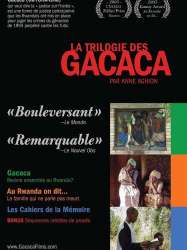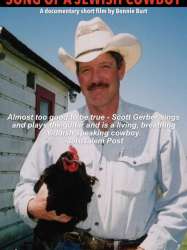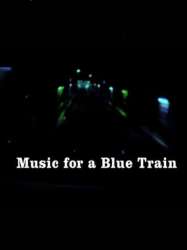Les films ayant le thème "Documentaire sur une personnalité", triés par nom

My Four Children (2002)
, 53minutesOrigine Israel
Genres Documentaire
Thèmes L'adoption, L'enfance, La famille, Documentaire sur une personnalité, Le handicap
 , 55minutes
, 55minutesRéalisé par Anne Aghion
Thèmes Afrique post-coloniale, Le racisme, Documentaire sur la discrimination, Documentaire sur le droit, Documentaire sur la guerre, Documentaire historique, Documentaire sur une personnalité, Documentaire sur la politique, Politique
The first film in this award-winning trilogy ventures into the rural heart of the African nation of Rwanda. Follow the first steps in one of the world’s boldest experiments in reconciliation: the Gacaca (Ga-CHA-cha) Tribunals. These are a new form of citizen-based justice aimed at unifying this country of 8 million people after the 1994 genocide which claimed over 800,000 lives in 100 days. While world attention is focused on the unfolding procedures, award-winning documentarian Anne Aghion bypasses the usual interviews with politicians and international aid workers, skips the statistics, and goes directly to the emotional core of the story, talking one-on-one with survivors and accused killers alike. In this powerful, compassionate and insightful film, with almost no narration, and using only original footage, she captures first-hand how ordinary people struggle to find a future after cataclysm.

The Revelator Collection (2002)
, 59minutesOrigine Etats-Unis
Thèmes La musique, Documentaire sur la musique, Documentaire sur une personnalité, Musique

Song of a Jewish Cowboy (2002)
, 18minutesOrigine Etats-Unis
Genres Documentaire
Thèmes La musique, Religion, Documentaire sur la musique, Documentaire sur une personnalité, Documentaire sur la religion, Musique, Religion juive

Throwing Curves: Eva Zeisel (2002)
, 1hOrigine Etats-Unis
Thèmes Documentaire sur l'art, Documentaire sur une personnalité

Waking Up the Nation (2002)
, 48minutesRéalisé par Agostino Imondi
Thèmes L'immigration, La mer, Transport, Documentaire sur le droit, Documentaire sur une personnalité
The documentary tells the story of a group of Australian human rights activists, who travel on an old bus, the Freedom Bus, to visit asylum seekers imprisoned in immigration detention centres across the country, and to educate Australian communities on their 12,000-kilometres-journey.

Wellman (2003)
, 30minutesThèmes L'environnement, Documentaire sur l'environnement, Documentaire sur une personnalité
The film's protagonist is a master of a dying trade: he excavates wells without using machines, relying only on hand tools. This approach is not just highly demanding physically, but also requires well-thought out methods and resourcefulness.

Confrontation at Concordia (2003)
Origine Canada
Genres Documentaire
Thèmes Afrique post-coloniale, Religion, Documentaire sur le droit, Documentaire sur la guerre, Documentaire historique, Documentaire sur une personnalité, Documentaire sur la politique, Documentaire sur la religion, Documentaire sur les villes, Politique, Religion juive
The documentary opens with scenes of the violence at the event, depicting fighting between protesters and Jewish students attempting to enter the venue. This is followed by an interview with student Samir Elitrosh, a leader of the Solidarity for Palestinian Human Rights and the leader of anti-Israel violence who was later suspended. It also features interviews with Concordia's Hillel president Yoni Petel and Concordia rector Frederick Lowy, and concludes with a discussion of what it sees as the growing trend of anti-Israel activities on North American campuses.

In the Flesh (2003)
, 53minutesRéalisé par Bishakha Datta
Thèmes Sexualité, Erotique, Prostitution, Documentaire sur une personnalité, Documentaire sur la prostitution
In The Flesh follows three sex workers, Shabana (who works the highways near Mumbai), Bhaskar (a transgendered hijra person who sells sex to men in Calcutta), and Uma, a former theater actress who lives in a Calcutta brothel. The film follows their daily routines, from picking up customers and sex to their private social lives to violence and activism.

Luboml: My Heart Remembers (2003)
, 57minutesGenres Documentaire
Thèmes Le racisme, Religion, Documentaire sur la discrimination, Documentaire sur le droit, Documentaire sur la guerre, Documentaire historique, Documentaire sur une personnalité, Documentaire sur la religion, Politique, Religion juive, Documentaire sur la Seconde Guerre mondiale
 , 52minutes
, 52minutesGenres Documentaire
Thèmes Documentaire sur l'art, Documentaire sur une personnalité
Filmmaker John J Doherty traces the life and work of the Irish artist, book illustrator and stained glass artist Harry Clarke (1889–1931) with major contributions from his biographer Nicola Gordon Bowe as well as many stained glass artists, poets and historians. The film takes the artist's work in stained glass, which was mainly religious & ethereal, and in book illustration, which was mainly dark & fantastical, as the basis for its title and tells a story of talent, struggle, success and the censorship of his final masterpiece 'the Geneva Window'. Harry Clarke brought his expertise in working in fine decorative detail in glass to his book illustrations, most notably in the tales of Hans Christian Andersen and Edgar Allan Poe where he is compared to Aubrey Beardsley and which are featured in the film and paralleled with German Expressionist cinema of the time. The film was made in conjunction with the Irish Film Board and national broadcaster TG4.

Marion's Triumph (2003)
, 50minutesGenres Documentaire
Thèmes L'enfance, Le racisme, Religion, Documentaire sur la discrimination, Documentaire sur le droit, Documentaire sur la guerre, Documentaire historique, Documentaire sur une personnalité, Documentaire sur la religion, Politique, Religion juive, Documentaire sur la Seconde Guerre mondiale
Acteurs Debra Messing
 , 30minutes
, 30minutesOrigine Etats-Unis
Genres Documentaire
Thèmes Le racisme, Documentaire sur la discrimination, Documentaire sur le droit, Documentaire sur une personnalité
In the mid-1940s, a tenant farmer named Gonzalo Mendez moved his family to the predominantly white Westminster district in Orange County and his children were denied admission to the public school on Seventeenth Street. The Mendez family move was prompted by the opportunity to lease a 60-acre (240,000 m) farm in Westminster from the Munemitsus, a Japanese family who had been relocated to a Japanese internment camp during World War II. The income the Mendez family earned from the farm enabled them to hire attorney David Marcus and pursue litigation.

Music for a Blue Train (2003)
, 48minutesOrigine Canada
Genres Documentaire
Thèmes La musique, Transport, Le train, Documentaire sur la musique, Documentaire sur une personnalité, Documentaire sur les villes, Musique

RoachTrip (2003)
, 46minutesRéalisé par Eric Roach Denis
Genres Documentaire
Thèmes La musique, Transport, Documentaire sur le monde des affaires, Documentaire sur le cinéma, Documentaire sur une personnalité, Musique, Road movie, Documentaire autobiographique
Acteurs Eric Roach Denis
RoachTrip starts by waving the black flag in the House of Commons and ends wandering lost in
 Connexion
Connexion